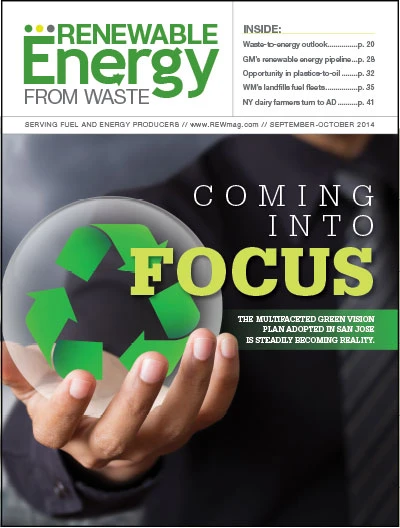 The Energy from Coffee Wastewater Project by UTZ Certified, Amsterdam, says it has proven it is possible to generate energy, tackle climate change and protect water resources by treating discharges from coffee mills. The project started in 2010 with the goal of addressing environmental and health problems caused by the wastewater produced in the coffee industry.
The Energy from Coffee Wastewater Project by UTZ Certified, Amsterdam, says it has proven it is possible to generate energy, tackle climate change and protect water resources by treating discharges from coffee mills. The project started in 2010 with the goal of addressing environmental and health problems caused by the wastewater produced in the coffee industry.
Tailor-made coffee wastewater treatment systems and solid-waste treatment mechanisms were installed in eight coffee farms in Nicaragua, 10 in Honduras and one in Guatemala. The positive environmental and economic impact of the project on more than 5,000 people in the region has inspired UTZ Certified to replicate the initiative in other countries, the firm says.
According to UTZ Certified, only 1 percent of freshwater in the world is available for human consumption. A cup of coffee requires 140 liters of water to be produced. More than 70 percent of water used in Latin America is returned to rivers without being treated.
Latin America produces around 70 percent of the world’s coffee and is the continent where 31 percent of the world’s freshwater resources are located. Yet coffee production generates a great amount of wastewater that is regularly released untreated into rivers, affecting aquatic fauna and flora as well as downstream communities, UTZ states. Additionally, coffee wastewater comes along with tons of organic waste and high toxicity which affects the soil and generates considerable amounts of greenhouse gas emissions, particularly methane, heavily contributing to climate change.
The Energy from Coffee Wastewater Project has been implemented in various sized farms. The achieved results of the project range from preventing local deforestation of native trees to better indoor environments for families who replaced firewood with domestic gas stoves for cooking. Additional outcomes included:
- treatment of essentially all water used in coffee processing;
- more than 50 percent less water used during coffee processing;
- generation of a significant amount of biogas used to power households and coffee mills; and
- prevention of the release of greenhouse gas emissions into the atmosphere.
“Coffee production is only environmentally sustainable when water is used efficiently and polluted water from the wet-mill process is treated,” says Han De Groot, executive director at UTZ Certified. “Local ecosystems do not have the capacity to clean the large amounts of contaminated fluids. Rural communities and coffee production depend intrinsically on a ready supply of fresh water. So if we want to talk about coffee produced in a sustainable manner, then wastewater must be treated when released into the environment.”
UTZ Certified is currently introducing the technology in Peru and Brazil. UTZ says it is interested in additional funding and industry support to replicate the initiative in Africa and Asia.
The Energy from Coffee Wastewater Project aims at preventing polluted water from coffee production to be released untreated into ecosystems while also generating energy from waste.
The project was awarded with the Sustainability Award by the Specialty Coffee Association of America in 2012 and by the Global Sustainable Biomass Fund in the Netherlands in 2010. The project is funded by the Dutch firm, Hivos, and the Dutch Ministry of Economic Affairs.

Explore the October 2014 Issue
Check out more from this issue and find your next story to read.
Latest from Waste Today
- Louisiana city launches glass recycling program
- City eWaste, Williamson County, Tennessee, offer electronics recycling stations
- Casella commits $1.5M to launch circular economy center at the University of Vermont
- Mavitec Green Energy expands in US market
- Eagle Dumpster Rental identifies its MRF-unfriendly items
- American Securities acquires Integrated Global Services Inc.
- Fleetio integrates Maintenance Shop Network add-in
- 3rd Eye expands suite of fleet safety solutions





